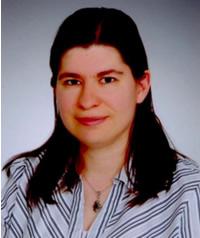Sevgi Gurbuz received the Best Student Paper Award at the 2010 IEEE International Radar Conference, held May 10-14 in Washington, D.C.
A fall 2009 Ph.D. graduate of the School of Electrical and Computer Engineering (ECE) at Georgia Tech, Ms. Gurbuz wrote this award-winning paper, "Enhanced Detection and Characterization of
Human Targets via Non-Linear Phase Modeling," with her co-advisors ECE Professor and Associate Chair Doug Williams and Bill Melvin, an adjunct professor in ECE and director of the Sensors and Electromagnetics Laboratory in GTRI. Ms. Gurbuz is now a senior research scientist with the Signal Processing and Remote Sensing Group at TUBITAK Space Technologies Research Institute in Ankara, Turkey.
The problem of human detection with radar may be broken down into two key tasks: 1) detecting the presence of a target and 2) deciding whether or not the target detected is human. Most current research has focused on the latter, overlooking the inherent SNR losses incurred when conventional, linear-phase detectors are applied to human targets. In fact, human targets have a highly non-linear phase history, made unique by the characteristic periodicities of bipedal motion, and differentiable from that of even other animals. This work aims to exploit the results of human modeling and gait analysis to design detectors specifically tailored to approximate as closely as possible the expected return from a human target.
